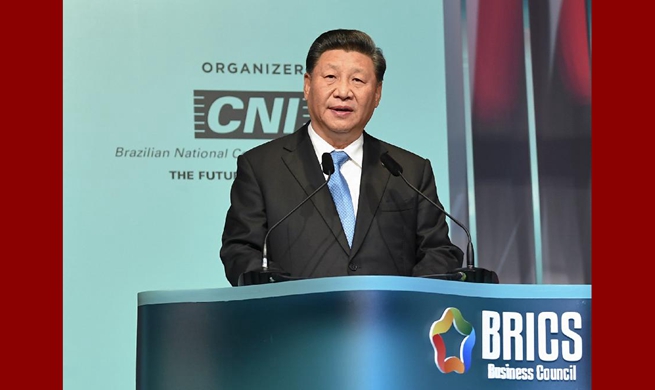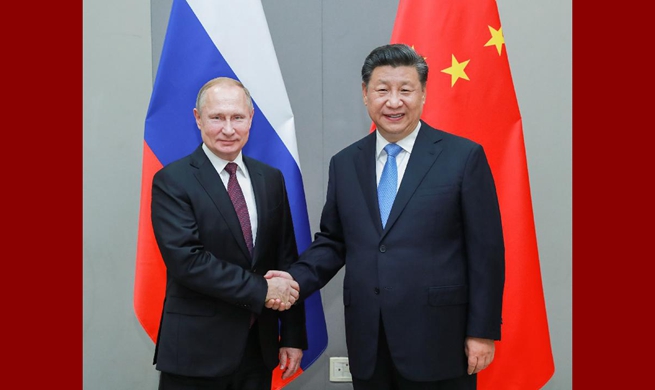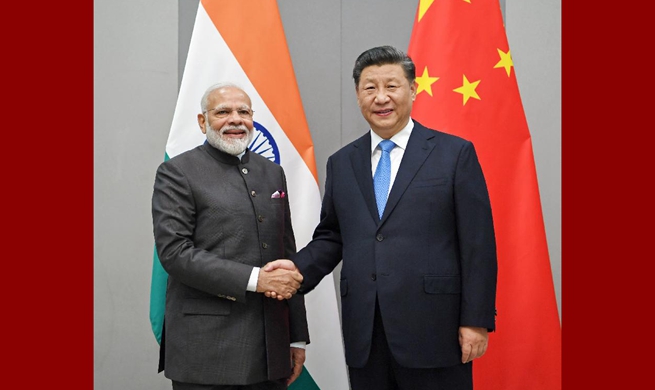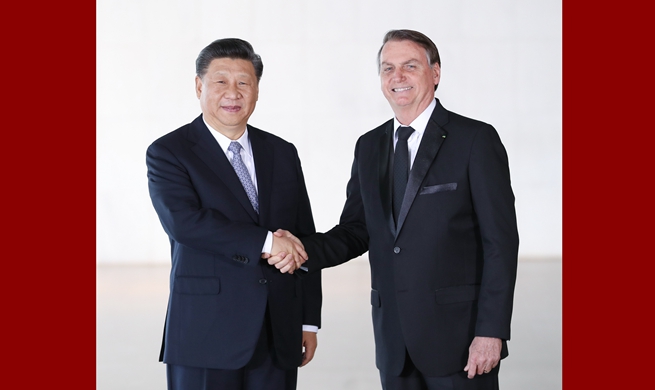ADDIS ABABA, Nov. 14 (Xinhua) -- African countries have been urged to carefully analyze global lessons and think beyond short-termism so as to effectively tap into the benefits offered by the African Continental Free Trade Area (AfCFTA) Agreement.
The latest call was made by the Institute for Security Studies (ISS), an African non-profit organization, as it stressed that "global lessons show that for AfCFTA to work, the continent's leaders must think beyond short-term election cycles."
The ISS, in its latest publication on Thursday entitled "Can African leaders put free trade above nationalism?" also noted that the signing of the continental free trade pact "couldn't have come at a better time for the continent," emphasizing some of the latest developments in the global trade relations.
According to the institute, the collective effort required to get 54 of the 55 African Union (AU) member countries to sign the AfCFTA, "particularly on a continent divided by disparate political agendas, short-termism and sporadic diplomatic standoffs, shouldn't be underestimated."
"While the agreement is lauded as an African solution to African problems, it is worth remembering the pitfalls of those who've traveled a similar journey to avoid the same mistakes. This is even more important as trade agreements worldwide show signs of unraveling," the ISS said.
Noting that trade relations in Europe were forged over decades following World War II to counteract the factors that caused the war, and collaborate for sustained economic growth and prosperity. Reaching agreement was an arduous process, the ISS stressed that "Africa seeks the same outcome in less than a tenth of the time and on a far grander scale."
The ISS, however, argued that "given the nature and extent of Africa's challenges, the continent doesn't have the luxury of time and can't afford to follow the traditional path towards integration."
The AfCFTA, which was launched on March 21 last year in Kigali, capital of Rwanda, also on July 7 added Nigeria, Africa's most populous and largest economy, and Benin to its growing list of signatories, leaving Eritrea as the only member of the African Union that has not signed onto the historic accord.
The AfCFTA came into force on May 30 this year, after the deposit of the required minimum of 22 instruments of ratification by AU member states to the AU Commission.
Five more instruments of ratification have since been deposited, including Gabon and Equatorial Guinea which deposited theirs as African leaders officially launched the operational phase of the continental free trade pact on July 7 in the Niger capital, Niamey.
The AfCFTA is set to start trading in July 2020 -- the timeframe is tight and the stakes are high, according to the 55-member pan African bloc AU.
Costantinos Bt. Costantinos, who served as an economic adviser to the African Union and the United Nations Economic Commission for Africa, also told Xinhua in a recent interview that AfCFTA would bring many direct as well as indirect opportunities in the continent's socioeconomic and political sphere.
"African countries can benefit from free trade by increasing their amount and access to economic resources," said Costantinos, adding "The AfCFTA will also allow African-owned companies to enter new markets, with significant reduction in input cost."
"Free trade agreement will also ensure small nations to obtain the economic resources needed to produce consumer goods or services," the expert noted.
The expert also argued that African countries with friendly neighbors may also be able to import goods more often, while the free trade pact would also bring about indirect advantages in improving countries' internal infrastructure, brings better security capabilities as well as improved political conditions.
The ISS also urged developed African countries "must take the lead in avoiding trade mismatches that could destabilize economies and drive a wedge between the continent's economic powerhouses and smaller states. An efficient and inclusive institutional approach is needed to avoid leaving any economies behind."
The AfCFTA, among its major aspirations, calls for a single continental market for goods and services, with free movement of business persons and investment, paving way for the swift establishment of a customs union.
Once fully operational, the free trade accord is projected to boost the level of intra-Africa trade by more than 52 percent by the year 2022, according to the UN Economic Commission for Africa (ECA).
According to the AU, the AfCFTA "has laid the foundation" for what could be the world's largest free trade zone by the number of participating countries, covering more than 1.2 billion people with a combined gross domestic product of 2.5 trillion U.S. dollars.













